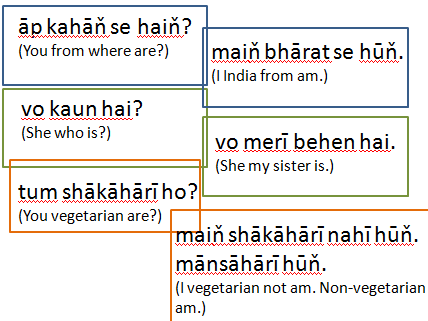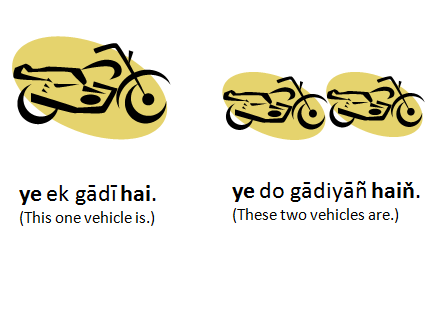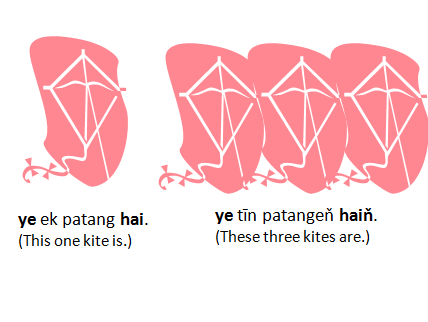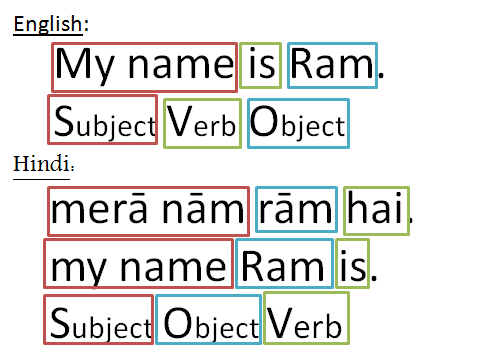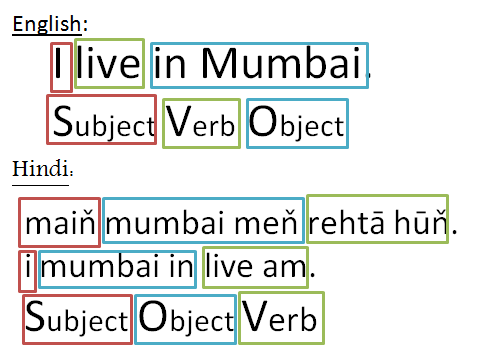Sound notations:
A = aa (as in car)
U = oo (as in food)
ñ = nasal sound
I. Complete the conversation between A & B. (The last column shows the literal translation.)
| A | Ap kahAñ se haiñ? | you where from are? |
| B | jee, maiñ ______________ se hUñ. aur Ap? | yes, I ______________ from am. And you? |
| A | maiñ ____________ se hUñ. Ap vegetarian haiñ yA non-vegetarian? | I _____________ from am. You vegetarian are or non-vegetarian? |
| B | jee, maiñ _______________ __________. | yes, I _____________ am. |
| A | achchA! Apke parivAr meñ kaun-kaun hai? | Good! Your family in who-who is? |
| B | _________ mammy, _________ pApA, __________ behen aur do bhAee haiñ. Apke? | my mummy, my papa, my sister and 2 brothers are. |
| A | ___________ ___________, ek betA aur ek betee. | My wife, one son and one daughter. |
II. Make short sentences using the right form of verbs.
| Example: A is a man. |
| A: maiñ __khAtA__ hUñ. (I eat.) |
- (A is a girl.) A: “maiñ ____________ hUñ. (I write.)”
- _____________ _____________ haiñ. (We dance.)
- (A is a boy.) A: “maiñ __________ hUñ. (I run.)”
- __________ Football ___________ hai. (He Football plays.)
- __________ lunch ___________ haiñ. (She[respect] lunch cooks.)
- murgee ande ___________ hai. (Hen eggs gives.)

